technical committee
The first technical committee is composed of about 20 scholars who are familiar with different directions or units invited by the forum initiator. The main work in the initial stage includes: 1) Organizing an academic report in the name of the forum; 2) Doing an academic report for the forum Report; 3) Recommend excellent academic papers or technical reports for the forum. If it is published in English, you need to write a Chinese introduction of about 1,000 words (refer to the article in the frontier research of the InForSec website). The current composition of the technical committee is as follows, and more researchers who are willing to contribute to the forum are welcome to join the technical committee.
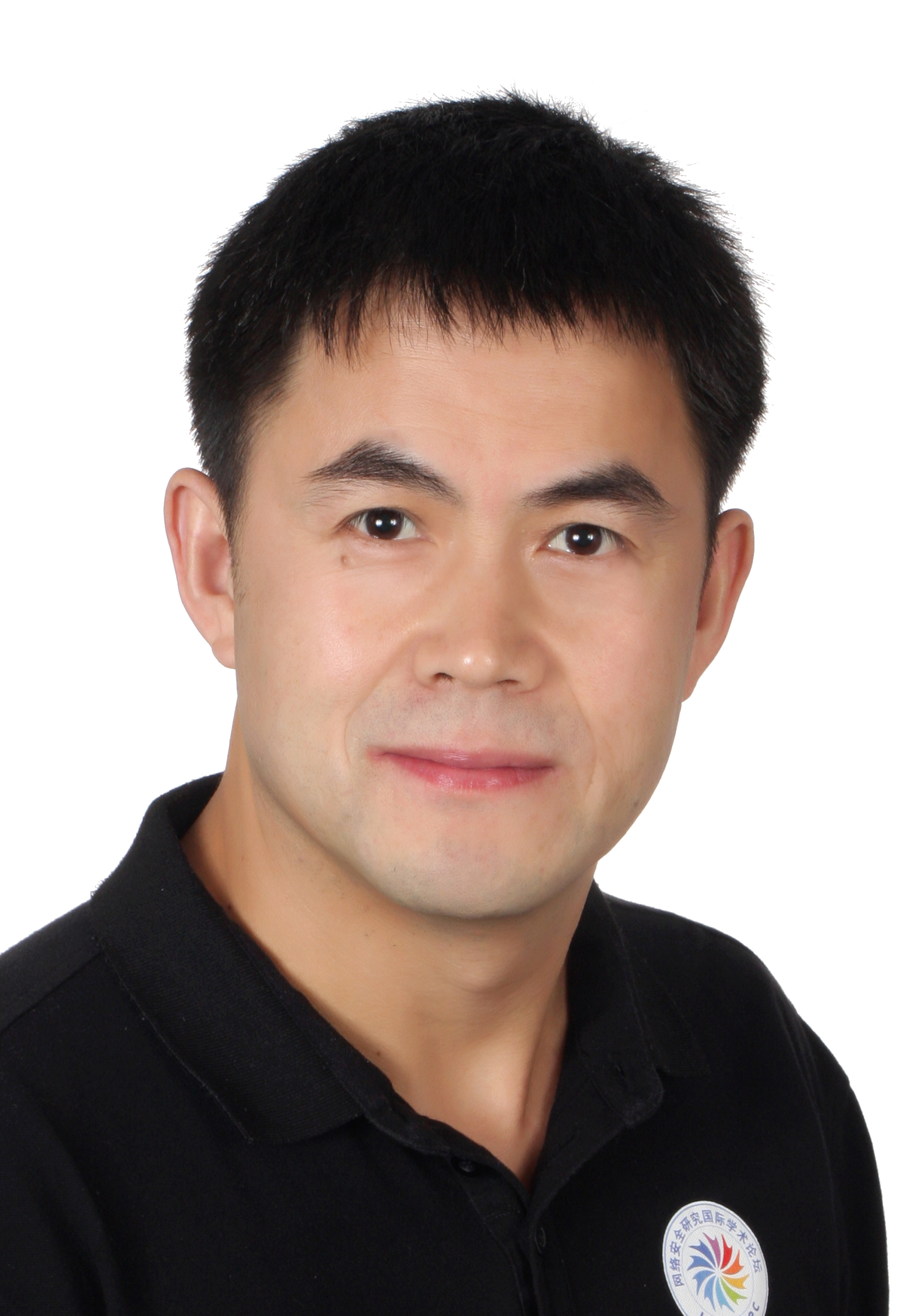 | Duan Haixin is a professor at the Network Research Institute of Tsinghua University, a member of the 8th Discipline Evaluation Group of the Academic Degrees Committee of the State Council, and the director of the Tsinghua University-Qianxin Group Joint Research Center. Engaged in cyberspace security teaching and research for more than 20 years, led the team to discover important security loopholes in basic Internet protocols, prompting Google, Microsoft, Amazon, Huawei, BAT and other companies to upgrade security products many times, prompting IETF and other international standardization organizations to revise many times protocol, which improves the security of the Internet Protocol. A number of research results have been published in the top international security academic conferences on cyber security, and have won the best paper award at the top international cyber security conferences for many times. He has a high influence in the academic and industrial circles at home and abroad. Organize the first "Network Security Excellent Talent" Award. Professor Duan is the co-founder of the world-renowned offensive and defensive team "Blue Lotus", the co-founder of the International Forum on Cyber Security Research (InForSec), a director of the Cyberspace Security Association, a member of the Protocol Committee of the China Cryptography Society, and a Security Committee of the Internet Society. Member of the committee, and has served as the program committee member of NDSS and other top international security committees and the deputy editor of international journals such as Transaction on Privacy and Security. |
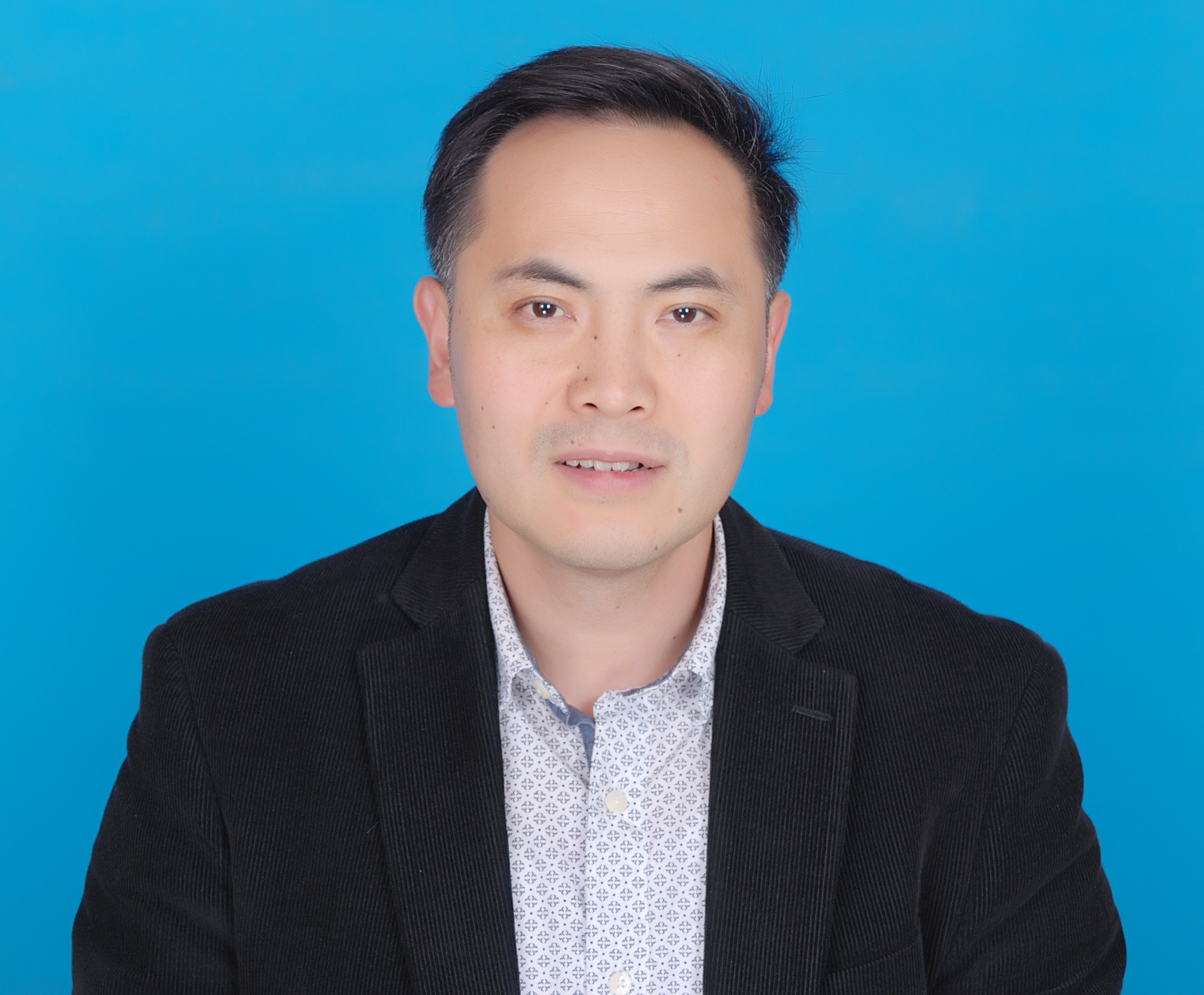 | Yan Chen, Ph.D. in Computer Science from the University of California, Berkeley, is currently a professor in the Department of Electrical Engineering and Computer Science at Northwestern University and director of the Internet Security Technology Laboratory. His main research interests are Internet network security and network management/measurement. He has won the U.S. Department of Energy's Early CAREER Award, the U.S. Department of Defense's (Air Force of Scientific Research's Young Investigator Award), and the Microsoft Trustworthy Computing Award (Trustworthy Computing Awards). Invited by Tsinghua University as a Santander overseas visiting scholar, founded Zhejiang University-Northwest Internet Joint Security Technology Laboratory as director. He has published more than 100 papers in top journals such as ACM/IEEE Transaction on Networking (ToN), IEEE Transactions on Mobile Computing (TMC), and top conferences such as SIGCOMM, IEEE Symposium on Security and Privacy (Oakland), USENIX NSDI, and NDSS. Invited to be a member of the Academic Committee of the China Internet Enterprise Security Working Group and a member of the China XCTF Offensive and Defense Competition Steering Committee. Homepage: http://www.cs.northwestern.edu/~ychen |
 | Liu Yang, Professor of the School of Computer Science, Nanyang Technological University (NTU), Singapore, Director of the NTU Cyber Security Laboratory, Project Director of the HP-NTU Corporation Laboratory, and Deputy Director of the National Satellite Center of Excellence in Singapore, and was awarded the University Leaders Forum Chair Professor in 2019. Dr. Yang Liu specializes in software verification, software security, and software engineering. His research fills the gap between theoretical and practical applications in formal methods and program analysis, evaluating software design and implementation to ensure high security. To date, he has published over 300 articles in top conferences and top journals. He has also won many prestigious awards, including MSRA fellowship, TRF Fellowship, Nanyang Assistant Professor, Tan Chin Tuan Fellowship, Nanyang Research Award 2019, NRF Investigatorship 2020, and 10 best papers in top conferences such as ASE, FSE, ICSE, etc. Award and the Most Influential Software Award. |
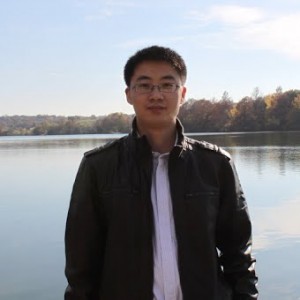 | Wang Tielei, chief scientist of the Pangu team. Ph.D. from Peking University, his main research areas are program automation analysis and software security. In 2011, he was the winner of the Outstanding Doctoral Dissertation of Peking University and the Outstanding Doctoral Dissertation of China Computer Federation. He has published many papers in top academic conferences such as IEEE Security & Privacy, USENIX Security, CCS, and NDSS, and won the Best Student Paper Award in IEEE Security & Privacy 2009. Reported at industry security summits such as Blackhat, CanSecWest, PoC, and XCon for many times. Homepage: https://sites.google.com/site/tieleiwang/ |
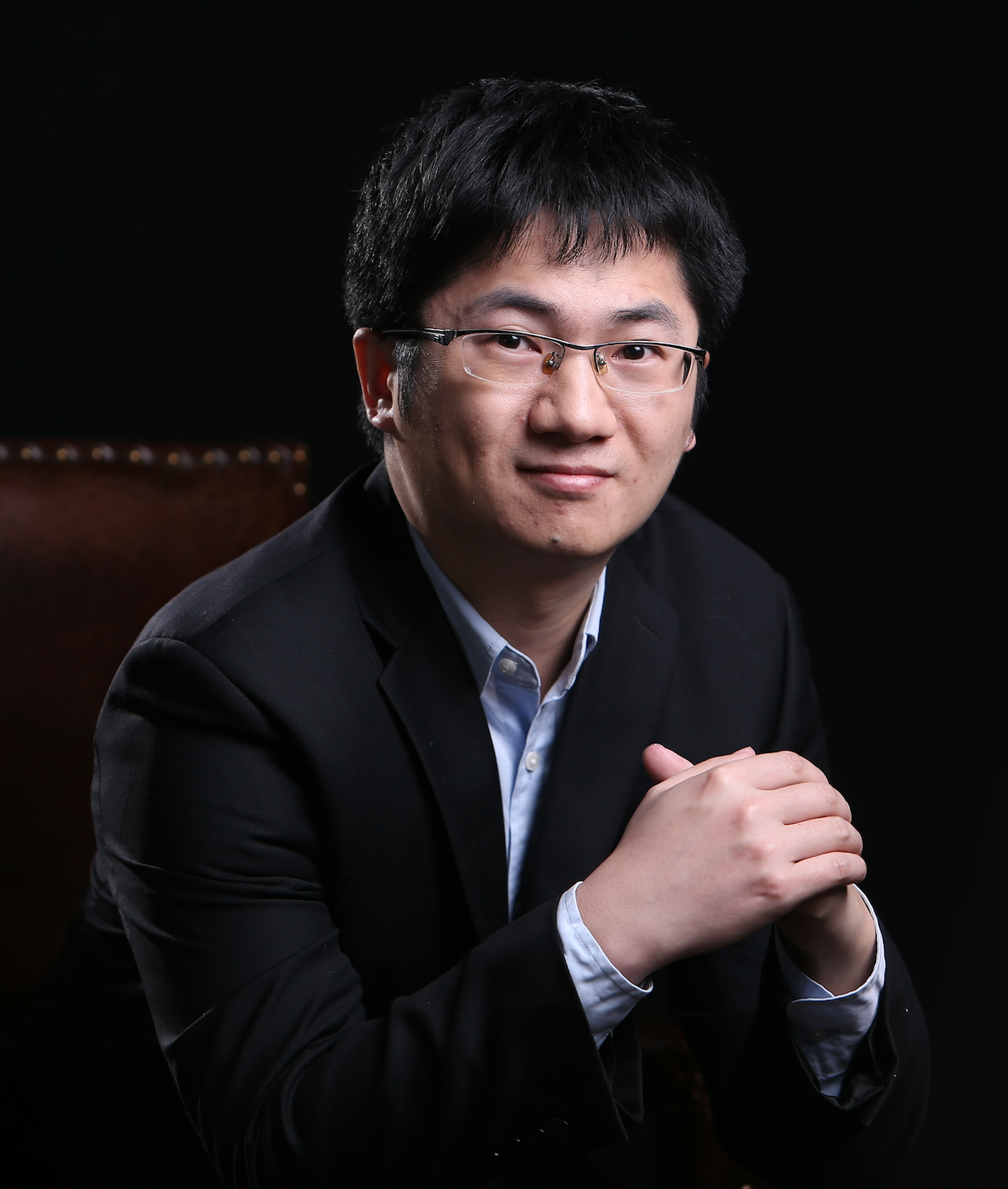 | Dr. Chao Zhang is an associate professor at the Institute of Network Science and Cyberspace, Tsinghua University. He graduated from Peking University and studied under Professor Dawn Song of UC Berkeley for academic research (postdoctoral fellow). The main research direction is system security, including practical software security protection, efficient software vulnerability mining and automated attack utilization technology research. He has published more than ten academic papers in IEEE S&P, NDSS, InfoCom and other conferences. One of his research achievements, FPGate, won the Special Recognition Award in the Microsoft BlueHat Prize competition. He is currently the co-leader of the BitBlaze research group and the technical leader of CodeJitsu, the seed team of the DARPA CGC automated attack and defense competition, and led the CodeJitsu team to win the third place in the CGC preliminary competition. He is also a member of the famous CTF team Blue Lotus. He has participated in many CTF competitions and won the fifth place in the world of DefCon CTF in 2015. Homepage: http://chao.100871.net/ |
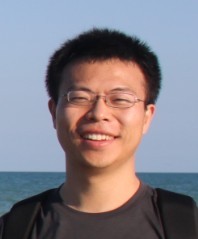 | Chen Kai, State Key Laboratory of Information Security, Institute of Information Engineering, Chinese Academy of Sciences, researcher, doctoral tutor. Member of the Privacy Protection Professional Committee of the China Confidentiality Association, and a member of the Youth Innovation Promotion Association of the Chinese Academy of Sciences. In 2010, he received his Ph.D. from the Graduate School of the Chinese Academy of Sciences and a post-doctoral fellow at the University of Pennsylvania. The main research areas include software security, intelligent terminal security, security evaluation and privacy protection. In many top international conferences such as IEEE Security and Privacy Conference (IEEE S&P), USENIX Security Conference (USENIX Security), ACM Computer and Communication Security Conference (ACM CCS), International Software Engineering Conference (ICSE), IEEE/ACM Automation Software Engineering Conference (ASE), IEEE Trans. on Reliability, etc. Published more than 50 papers, and made conference reports at international academic conferences for many times; obtained and applied for 12 patents; hosted and participated in the National Natural Science Foundation of China, 863 Program, and the Chinese Academy of Sciences Strategic Pilot More than 30 national ministries and commissions such as science and technology projects and information security projects of the National Development and Reform Commission; review experts for SCI journals such as TDSC, TIFS, Computers & Security; members of international conference committees such as AsiaCCS, SecureComm; review experts from the National Natural Science Foundation of China, National Postdoctoral Fund Review experts. Homepage: http://www.kaichen.org |
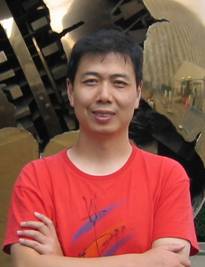 | Dr. Wu Chenggang is a senior engineer and doctoral supervisor of the State Key Laboratory of Computer Architecture, Institute of Computing Technology, Chinese Academy of Sciences. Deputy Director of the Architecture Committee of the China Computer Federation, member of the Working Committee of the China Computer Federation, and member of the Computer Security Committee of the China Computer Society. Engaged in the research of software security technology based on compilation technology, aiming to enhance the security, reliability and efficiency of software through compilation technology. He has deep technical accumulation in program defect location, binary code analysis, transformation and optimization, runtime program behavior monitoring, and software security immunity. He has published nearly 30 papers, some of which have been published in academic journals and conferences such as ICSE, TPDS, TACO, SIGMETRICS, ASE, PACT, CGO, VEE, DATE, etc. He has obtained 16 authorized patents and 5 software copyrights, and won the Beijing award in 2012. Municipal Science and Technology Second Prize. He is the chairman of the international academic conference CGO 2013, the chairman of the program committee of APPT 2013, and the program committee member of CGO2015, CGO2016, PLDI2012, CCGrid 2015, ICPADS 2014, PPPJ2014 and other conferences. Homepage: http://www.carch.ac.cn/~wucg |
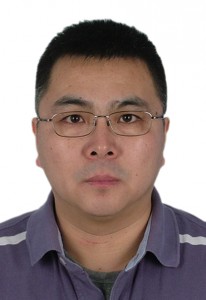 | Han Xinhui, Institute of Computer Science and Technology, Peking University, senior engineer, Ph.D., master tutor. Since graduating in July 1994, he has been engaged in computer application technology research in the Institute of Computer Science and Technology of Peking University, and has accumulated profound scientific research and practical experience in network communication and information security technology. He has presided over the completion of a number of large-scale application software systems and The research and development of scientific research projects, undertaking and participating in the completion of more than 20 national scientific research projects (including the National Natural Science Foundation of China, the 863 plan project, the national 242 information security plan project, the National Development and Reform Commission information security special project and other national scientific research projects, etc.). Mainly engaged in the research and engineering practice of Internet security threat monitoring, malicious code analysis, P2P network optimization, security vulnerability detection and analysis and other technologies, some of the research and development results have been applied in relevant national departments. He has published more than 30 academic papers and obtained nearly 20 invention patents. Homepage: http://www.icst.pku.edu.cn/team/content_247.htm |
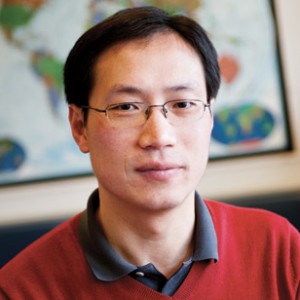 | Dr. XiaoFeng Wang is a professor in the School of Informatics and Computing at Indiana University, Bloomington. He received his Ph.D. in Electrical and Computer Engineering from Carnegie Mellon University in 2004, and has since been a faculty member at IU. Dr . Wang is a well-recognized researcher on system and network security. His work focuses on cloud and mobile security, and data privacy. He is a recipient of 2011 Award for Outstanding Research in Privacy Enhancing Technologies (the PET Award) and the Best Practical Paper Award at the 32nd IEEE Symposium on Security and Privacy. His work frequently receives attention from media, including CNN, MSNBC, Slashdot, CNet, PC World, etc. His research is supported by the NIH, NSF, Department of Homeland Security, the Air Force and Microsoft Research.He is the director of IU's Center for Security Informatics. URL: http://www.informatics.indiana.edu/xw7/ |
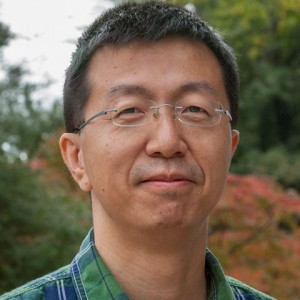 | Kang Li is currently a Professor of Computer Science at the University of Georgia, where he leads the Cyber Security research cluster. Dr. Li received his BS degree in computer science from Tsinghua University, and he graduated with his Ph.D in computer science and engineering from Oregon Graduate Institute at Portland, Oregon. He worked as a research scientist at the College of Computing of Georgia Tech before joining University of Georgia. His research interests are in the areas of computer security and operating systems. His current research topics include virtualization security and bootloader firmware security. Dr. Kang Li has also founded multiple CTF security teams, including Disekt, and SecDawg, which play various CTF competitions around the world. URL: http://cobweb.cs.uga.edu/~kangli/ |
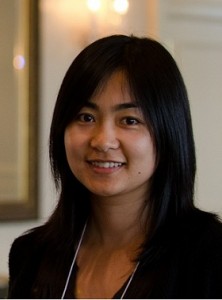 | Xu Wenyuan, female, Ph.D., is currently a professor and doctoral supervisor at the School of Electrical Engineering, Zhejiang University, a candidate for the National "Thousand Talents Program", a recipient of the National NSF CAREER Award, and a Tenured Associate Prof. at the University of South Carolina. Engaged in wireless network security and privacy research for many years, research projects include industrial control network security, vehicle networking security, and smart grid security. Presided over a number of US National Fund research projects. He is currently an Associate Editor for international journals including EURASIP Journal on Information Security and Ad Hoc & Sensor Wireless Networks, and has served as a member of the program committee and chapter chairman of international academic conferences for several times. He has published nearly 50 journals and conference papers (including the four top conferences in the field of security), and published 1 academic monograph, which has been cited (Google Scholar) for a total of 3,000 times. Homepage: www.cse.sc.edu/~wyxu |
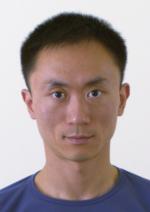 | Professor Chen Hao received his Ph.D. from the University of California, Berkeley. He has taught at the University of California, Davis since 2004 and was hired as a tenured professor. He is now in the School of Information, ShanghaiTech University. Professor Chen Hao has long been engaged in the teaching and research of information security. His research content covers software security, World Wide Web security, wireless network security, smart phone and application security, etc. His research results have been widely reported by the New York Times and other mainstream American media, and have won awards. Outstanding Youth Award from the National Science Foundation and Outstanding Youth Award from the University of California, Davis. Prof. Hao Chen serves as a program committee member of a leading international conference in the computer security community, and is the co-founder and 2012 program committee chair of IEEE Mobile Security Technologies. Homepage: http://web.cs.ucdavis.edu/~ |
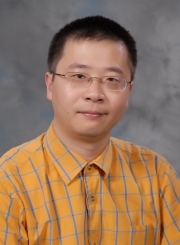 | Dr. Guofei Gu (Gu Guofei) is an associate professor in the Department of Computer Science & Engineering at Texas A&M University (TAMU). Before coming to Texas A&M, he received his Ph.D. degree in Computer Science from the College of Computing, Georgia Institute of Technology. His research interests are in network and system security, such as Internet malware analysis/detection/defense, software-defined networking (SDN/OpenFlow) security, mobile/smartphone security, and intrusion/anomaly detection. Dr. Gu is a recipient of 2010 NSF CAREER Award, 2013 AFOSR Young Investigator Award, 2010 IEEE Symposium on Security & Privacy (S&P'10) Best Student Paper Award, 2015 International Conference on Distributed Computing Systems (ICDCS'15) Best Paper Award, and a Google Faculty Research Award. He is currently directing the SUCCESS Lab at TAMU.URL: http://faculty.cse.tamu.edu/guofei/ |
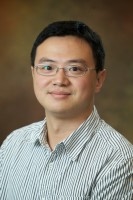 | Dr. Heng Yin is Associate Professor at Syracuse University. He obtained BS and MS degrees in Computer Science at Huazhong University of Science and Technology in 1999 and 2002 respectively, and obtained PhD in Computer Science at College of William and Mary in 2009. Then he joined Syracuse University as a tenure-track assistant professor and was promoted to be associate professor in 2015. In 2011, he received the prestigious NSF Career award. His research interests lie in software and system security, especially in binary code analysis, mobile application security, virtualization, etc. URL: https://sites.google.com/site/hengyinweb/ |
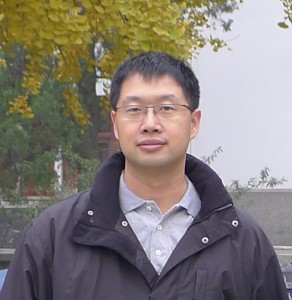 | Dr. Zhenkai Liang is an associate professor at the School of Computing, National University of Singapore. His main research fields are system security and web security. His current research focuses on browser-based web application security detection and protection, remote attack response and analysis, and software debugging. Related work has been published in ACM CCS, IEEE Security & Privacy, ACM SIGSOFT FSE, Usenix Security Symposium, NDSS and other top international conferences and top international journals such as IEEE Transactions on Dependable and Secure Computing (TDSC), ACM Transactions on Software Engineering and Methodology (TOSEM), ACM Transactions on Information and System Security (TISSEC), He is also a program committee member of ACM CCS, USENIX Security Symposium, NDSS and other conferences and an associate editor of IEEE Transactions on Dependable and Secure Computing (TDSC). Dr. Zhenkai Liang has won several research and teaching awards, including: 2014 ICECCS Best Paper Award, 2014 W2SP Best Paper Award, 2009 ACM SIGSOFT ESEC/FSE Outstanding Paper Award, 2007 USENIX Security Symposium Best Paper Award , 2003 Annual Computer Security Applications Conference (ACSAC) Outstanding Paper Award, 2008 NUS Young Investigator Award, 2014 and 2015 NUS Annual Outstanding Teaching Award. Dr. Zhenkai Liang received his Ph.D. degree from Stony Brook University in 2006, and a bachelor's degree in computer science and a bachelor's degree in economics from Peking University in 1999. URL:https://www.comp.nus.edu.sg/~liangzk/ |
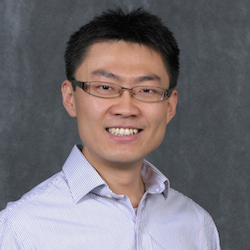 | My name is Long Lu (Lu Long). I'm an Assistant Professor in the Department of Computer Science at Stony Brook University. I direct the RiS3 Lab (Research in Software and Systems Security). I earned my Ph.D. in Computer Science from Georgia Tech. My research aims at securing software and systems. Recently I've been pursuing this goal in the context of smartphones and the Web. My work frequently intersects with other computer science fields outside of security, including operating systems, program analysis , and software engineering. I enjoy building practical systems to solve challenging security problems. URL: http://www.longlu.org/ |
 | Yang Min, chief scientist of 973, professor and doctoral supervisor of the School of Software, Fudan University. The main research direction is system software and system security, and is the first to carry out research on mobile security issues in China. With the accumulation of advantages in the field of program analysis technology, a series of breakthroughs have been made in the field of system security defect detection and protection methods, which have formed a large social and academic influence, and have been highly valued by national leaders and many ministries. Over the years, he has published more than 40 papers in top international academic conferences and various journals. In 2011, the research paper published in the USENIX Annual Technical Conference, a top academic conference in the field of system software, was the first in a domestic university. In 2013, he published in the field of information security. The 20th ACM Conference on Computer and Communications Security, a top-level conference, published two academic papers on Android system security research, which attracted great attention from academic peers and the industry. He is currently an expert in the final evaluation of outstanding doctoral dissertations of the China Computer Federation (CCF), an evaluation expert of the National Natural Science Foundation of China, the Shanghai Municipal Science and Technology Commission and the Shanghai Municipal Commission of Economy and Information Technology, and a reviewer of several important academic conferences and journals on information security. At present, as the project leader, he is undertaking more than 10 research projects in the country, Shanghai and enterprises, and has formed important social benefits and good economic benefits. |
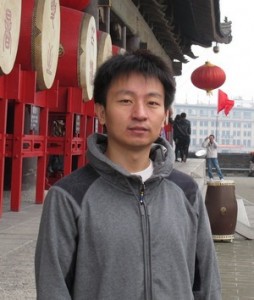 | Dr. Wei Tao, the former chief security scientist of Baidu, the head of the security laboratory. He used to be an associate professor at Peking University, BitBlaze Co-organizer and MITBBS Co-founder, a famous security team at UC Berkeley. He has made extraordinary achievements in system security academia and industry. |
 | Chen Haibo, male, is a professor at the School of Software, Shanghai Jiao Tong University. His main research interests are system architecture, operating system and system virtualization. He once participated in the research of many-core operating system at the Massachusetts Institute of Technology, and engaged in the research of trusted virtualization at the headquarters of VMWare, a famous virtualization company in California. He has served as the co-chair of the internationally renowned academic conference ACM Asia-Pacific Systems Conference (APSys 2011) and served as a number of top international academic conferences such as International Conference on Operating System Principles (SOSP 2013), European Systems Conference (EuroSys 2013, 2014), International Parallel Architecture Program committee member of Compiler Technology (PACT 2013), USENIX Technology Annual Conference (Usenix ATC'2012). Relevant research results have been published in many top international conferences such as International Conference on Operating System Principles (SOSP), USENIX Operating System Design and Implementation Conference (OSDI), International Architecture Conference (ISCA), International Microprocessing Architecture Conference (MICRO), International High Performance Conference Architecture Conference (HPCA), International Conference on Software Engineering (ICSE), International Conference on Principles and Practice of Parallel Processing (PPoPP) and IEEE Transactions on Software Engineering, etc. The doctoral dissertation "Research on the Credibility Enhancement Technology of Cloud Computing Platform" won the 2011 National Excellent Doctoral Dissertation and the 2009 China Computer Federation Outstanding Doctoral Dissertation Award. Homepage: http://www.se.sjtu.edu.cn/teacher_view.action?teacherid=41 |
 | Su Purui, researcher, doctoral supervisor, deputy director of the Trusted Computing and Information Assurance Laboratory of the Institute of Software, Chinese Academy of Sciences, member of the Security Protocol Professional Committee of the Chinese Cryptographic Society, special expert of the National Information Security Experiment Platform, and member of the Beijing Computer Network Virus and Early Warning Expert Group . He has presided over more than ten national-level scientific research projects and topics such as the National Natural Science Foundation of China, the National 863 Program, and the National Science and Technology Support Program. His research interests include malicious code analysis, software vulnerability analysis and utilization, software dynamic reverse analysis and security assessment, etc. He has published more than 30 academic papers in academic journals such as IEEE TDSC, RAID, ACSAC and international academic conferences. Individuals have won provincial and ministerial-level scientific and technological achievement awards, the President's Award of the Chinese Academy of Sciences and other awards. Homepage: http://people.ucas.ac.cn/~supurui |
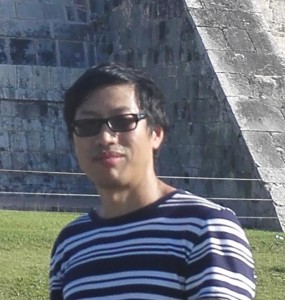 | Dr. Tao Wan, Research Fellow at CableLabs, Canada. He has been engaged in research and development in the field of Internet security for a long time, focusing on the security of Web, mobile, CDN, Routing, SDN, 5G, PKI, and TLS. Published in security conferences and security journals such as NDSS, Oakland, USENIX Security and ACM TISSEC. |
 | Yu Yu, Shanghai Jiaotong University, professor. His main research interests include basic theory of cryptography, post-quantum cryptography, and privacy-preserving computing. Yu Yu received his bachelor's and doctoral degrees from the Department of Computer Science of Fudan University and the School of Computer Science of Nanyang Technological University, and then worked as a postdoctoral researcher at the University of Leuven in Belgium. Many of Dr. Yu's research achievements have been presented at the top conferences on cryptography and information security such as the three major cryptographic conferences of the International Cryptography Society, the four major cryptographic conferences, S&P, and CCS. He is currently a member of the Mathematical Theory Committee of the Chinese Cryptography Society, a member of the ASIACRYPT Steering Committee and an observer of the International Cryptography Society Council. |
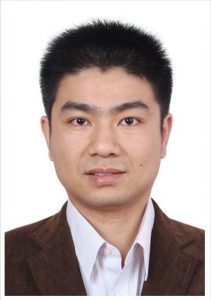 | Lin Jingqiang, Ph.D., is a researcher at the Institute of Information Engineering, Chinese Academy of Sciences. Since entering the State Key Laboratory of Information Security, Chinese Academy of Sciences for study and research in 2001, he has undertaken and participated in the National 973 Program, the National 863 Program, the National Science and Technology Support Program, the Natural Science Foundation, the National Cryptography Development Fund, the National Development and Reform Commission Information Security Project, and the Chinese Academy of Sciences Strategy He has received many scientific research projects, such as the special pioneering science and technology project, the Electronic Information Industry Fund of the Ministry of Industry and Information Technology, and the Knowledge Innovation Project of the Chinese Academy of Sciences; won the first prize of Cryptography Science and Technology Progress (2015), the second prize of National Science and Technology Progress (2005) and the second prize of Beijing Science and Technology Progress Award (2004). His research fields include: network and system security, applied cryptography and data security. Related research results have been published in conferences and journals such as IEEE S&P, NDSS, AsiaCrypt, ESORICS, CHES, TDSC, TKDE, TIFS, etc. |
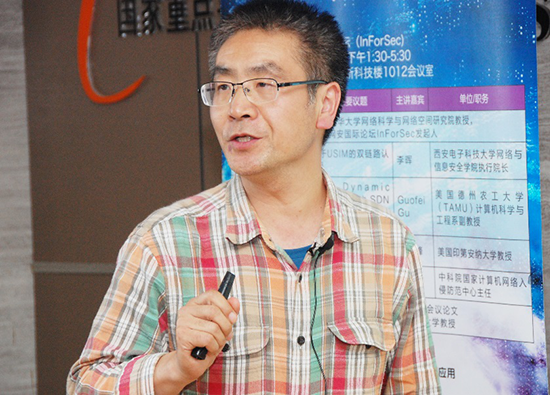 | Zhang Yuqing, professor of the University of Chinese Academy of Sciences, doctoral supervisor, director of the National Computer Network Intrusion Prevention Center, Shaanxi "Hundred Talents Program", Huashan Chair Professor. Mainly engaged in research and development of network attack and defense, security vulnerability mining and utilization, network and system security, and published more than 100 SCI/EI papers, including IEEE S&P, USENIX Security, ACM CCS, IEEE Transactions on Parallel and Distributed Systems (TPDS), IEEE Transactions on Cloud Computing (TCC), ESORICS, INFOCOM, GLOBECOM, etc., and formulated 7 national and industry standards. He has successively undertaken national key R&D projects, key projects of the National Natural Science Foundation of China, information security special projects of the National Development and Reform Commission, national high-tech development plan (863) projects, important direction projects of knowledge innovation projects of the Chinese Academy of Sciences, and national 242 information security plan projects. In the past ten years, he has personally presided over more than 20 million scientific research projects. |
 | Wang Meiqin, Professor, Executive Dean of the School of Cyberspace Security of Shandong University; Distinguished Professor of Taishan Scholars, Executive Deputy Dean of the School of Cyberspace Security, Deputy Director of the Key Laboratory of Cryptography and Information Security of the Ministry of Education. His research direction is the analysis and design of symmetric cryptographic algorithms. As the first author or corresponding author, he has published more than 60 papers in top conferences, important conferences and journals in the field of cryptography, including 24 CCF A/B papers, and 14 papers in five top international crypto conferences hosted by the International Cryptography Society. Published papers Google Scholar cited 1505 times. Presided over and participated in a number of subjects such as national key research and development projects, key projects of the National Natural Science Foundation of China and general projects. Undertook 2 key projects of Shandong University's teaching reform, guided students to win various professional competition awards and national scholarships for many times, and guided graduate students to obtain outstanding doctoral dissertations of China Cryptography Society, outstanding doctoral and master's dissertations of Shandong Province. |
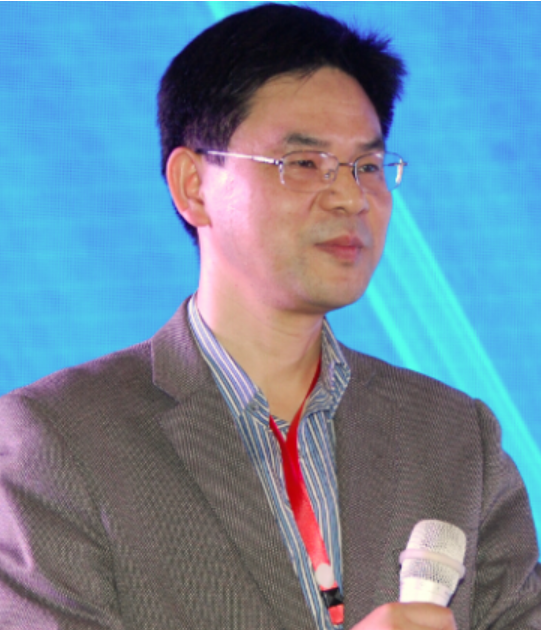 | Cheng Guang, Dean of the School of Cyberspace Security at Southeast University. Professor and doctoral supervisor of Southeast University, currently Executive Dean of the School of Cyberspace Security of Southeast University, Director of the Key Laboratory of Computer Network and Information Integration of the Ministry of Education, Executive Director of the National Cyberspace International Governance Research Base (Southeast University), and Jiangsu Province Cyberspace Security University Alliance Chairman, Deputy Director of Cyberspace Security Special Committee of China Command and Control Society, Member of Academic Committee of Information System Security National Defense Laboratory and other social part-time jobs. The research direction is to undertake 30 national, provincial and ministerial scientific research projects in the research fields of cyberspace security, traffic big data, future network theory and methods. He has published more than 100 academic papers in top domestic and foreign conferences and journals such as IEEE/ACM Transactions on Networking, Chinese Journal of Computer, and Chinese Journal of Software, nearly 20 SCI indexed papers, and 6 monographs. He has received more than 30 national, provincial and ministerial and corporate scientific research projects, and achieved innovative research results; 22 authorized invention patents have been successfully transformed into 5 patents. Published 7 monographs and trained more than 100 graduate students. |
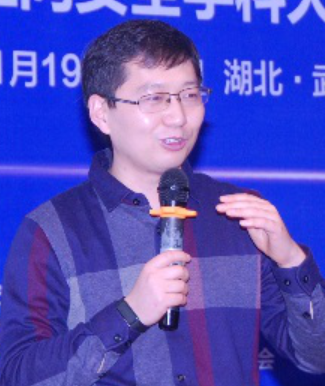 | Ji Shouling, researcher and doctoral supervisor of the "Hundred Talents Program" of Zhejiang University; obtained a Ph.D. in Electrical and Computer Engineering from Georgia Institute of Technology and a Ph.D. Polytechnic Research Faculty. His main research directions are artificial intelligence security, data-driven security, software and system security, and big data analysis. He has published more than 100 papers. He has won the China National Outstanding International Student Award, seven best paper awards, and the GSU Outstanding Research Award. |
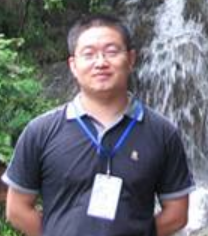 | Guo Shanqing, Professor of Shandong University, Deputy Dean of the School of Cyberspace Security of Shandong University; his main research can be used to analyze various computing platforms (general-purpose computer systems, embedded systems, etc.) and various new applications (cloud, blockchain, artificial intelligence, etc.) Methods, technologies and tools for software vulnerability and network vulnerability of intelligent applications, etc., as well as various types of security enhancement methods, implementation security and application security of cryptographic algorithms and cryptographic protocols, etc. In recent years, he has undertaken and participated in more than 20 national, provincial and ministerial-level scientific research projects, including the key projects of the National Natural Science Foundation of China and the special projects for independent innovation and achievement transformation of Shandong Province. Some research results have been published in domestic and foreign academic journals and international academic conferences such as ACSAC, RAID, DSN, ICSME, ISSRE, etc., and 5 invention patents have been obtained. |
 | Zhang Yuan, associate professor and doctoral supervisor of the School of Computer Science and Technology, Fudan University, deputy director of the System Software and Security Laboratory, his main research direction is system security attack and defense technology. Selected for the Shanghai Morning Star Program and won the ACM SIGSAC China Rising Star Award. Research work has been published in top international conferences and journals such as IEEE S&P, ACM CCS, USENIX Security, NDSS, ICSE, IEEE TIFS, etc. He is a member of the program committee of IEEE S&P, USENIX Security, ESORICS, Euro S&P, AsiaCCS and other conferences, an editorial board member of the Empirical Software Engineering Journal (EMSE), and a contributing editor of the special issue of "System Software Security" of the Journal of Software. Led the Fudan Baize team to win the 2020 National College Student Information Security Competition Innovation and Practice Ability Competition, the 2019 and 2020 National University Network Security League (X-NUCA) Team Championship and Individual Championship, and the 2020 XCTF Finals Championship, 2019 In 2020, he was the champion of the West Lake Swordsmanship CTF competition, and several high-risk software and hardware vulnerabilities discovered were included in the GeekPwn and XPwn vulnerability lists. Personal homepage: https://yuanxzhang.github.io/ . |
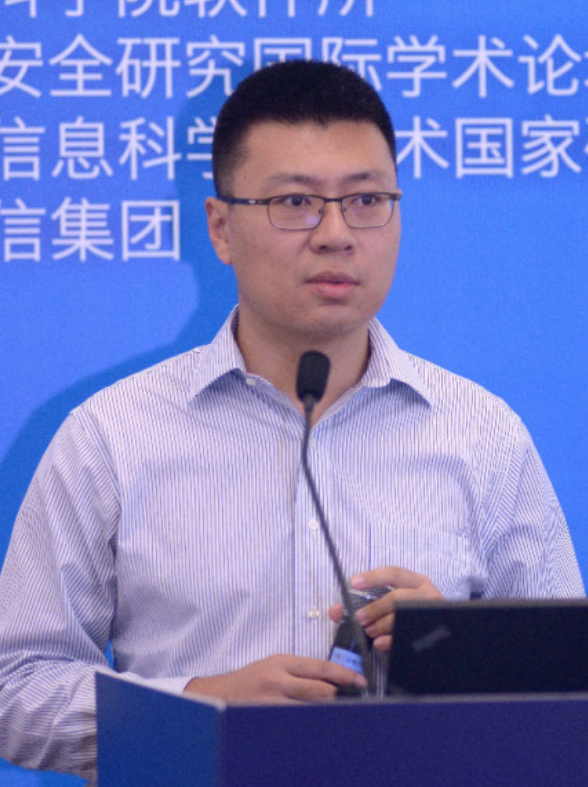 | Zhang Yinqian is a professor at the Department of Computer Science and Engineering, Southern University of Science and Technology. His research interests include architectural security, software and system security, distributed system and application security, security and artificial intelligence, and formal verification of security systems. The research goal is to solve the credibility and security issues in key fields such as cloud computing, Internet of Things, and blockchain, and to provide technical support for application scenarios such as data privacy, smart terminals, financial technology, and in-vehicle systems. Previous awards include AMiner's Nomination for Most Influential Security and Privacy Scholar, 2020; Rising Star Award from the North American Chinese Computer Scholars Association, 2019; IEEE MICRO Top Picks Nomination, 2019; IEEE Computer Architecture Letters Best Paper, 2019; National Science Foundation Young Scientist Award, 2018. |
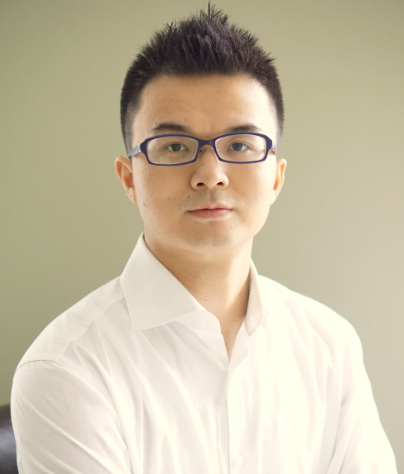 | Zhang Fengwei is an associate professor and researcher at the Department of Computer Science and Engineering, Southern University of Science and Technology. He received his Ph.D. in computer science from George Mason University in 2015. His main research areas are system security, including trustworthy execution, hardware-assisted security, transparent malware debugging, transportation security, and plausible deniability encryption). Mr. Zhang has published more than 40 papers in international conferences and journals, including IEEE S&P, USENIX Security, NDSS, IEEE TIFS and IEEE TDSC. He is a member of the program committees of several top international conferences, including IEEE S&P, ACM CCS, ACSAC, IEEE/IFIP DSN, etc.; recipient of the ACSAC 2017 Outstanding Paper Award and nominated for the IEEE/IFIP DSN 2020 Best Paper; his The research work has been supported by a number of US Natural Science Foundation projects. |
 | Zou Deqing, Executive Dean and Professor of the School of Cyberspace Security, Huazhong University of Science and Technology; Deputy Dean of the School of Cyberspace Security and Deputy Dean of the School of Computer Science, National Excellent Teacher of Cybersecurity, New Century Excellent Talent of the Ministry of Education, and Educational Guidance of Cyberspace Security of the Ministry of Education Committee member, Deputy Director of the Office of National Cyber Security Talent and Innovation Base, Deputy Director of Wuhan Institute of Cyber Security Strategy and Development, Chairman of Wuhan China Optics Valley Information and Cyberspace Security Industry Technology Innovation Alliance, Chinese Information Society Big Data Security and Deputy Secretary-General of the Privacy Computing Committee. He presided over a number of important national projects such as the Ministry of Science and Technology’s key special project on cyberspace security, the 863 project, and the National Natural Science Foundation of China. He is also the technical director of the 973 plan project “Research on Basic Theory and Methods of Cloud Computing Security”. He has published 4 books and published important More than 100 academic papers. Apply for/obtain more than 40 national technical invention patents (including: 3 international patents). Won 1 first prize for technological invention of the Ministry of Education and 1 first prize for scientific and technological progress in Hubei Province. |
 | Liu Han is a professor and associate dean of the School of Cyberspace Security, Xi'an Jiaotong University. His main research interests include software engineering and cyber-physical fusion systems. In 2003 and 2010, he received his bachelor and doctorate degrees from Xi'an Jiaotong University, respectively; from 2016 to 2017, he was a visiting professor at Cornell University. He has won 5 provincial and ministerial science and technology awards, including the second prize of the National Science and Technology Progress Award in 2017 and the first prize of the Ministry of Education's Science and Technology Progress Award in 2015. He has published more than 70 papers in international authoritative journals such as IEEE TIFS, IEEE TSG, IEEE TSE and other top international conferences such as ICSE, FSE, ASE, ISSTA, INFOCOM, etc., and won the Best Paper Award of 2019 IEEE INFOCOM, 2016 IEEE ISSRE and other conferences. |
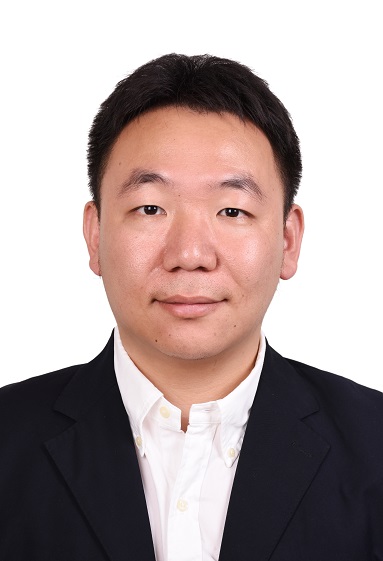 | Shen Chao, Deputy Dean and Professor of the School of Cyberspace Security, Xi'an Jiaotong University; Associate Professor of the Key Laboratory of Intelligent Network and Network Security of the Ministry of Education, Xi'an Jiaotong University, Doctoral Rookie of the Ministry of Education, and member of CCF YOCSEF Xi'an AC. From 2011 to 2013, he was engaged in research work at Carnegie Mellon University in the United States. Focusing on the needs of computer and network behavior cognition and security analysis, he carried out smartphone behavior analysis and security applications, identity active authentication and intrusion detection, wearable sensor security analysis, Research work on depth perception of network security attributes and industrial control network security. Undertook and participated in a number of subjects including countries and enterprises, and presided over and participated in the development of multiple systems. He has published more than 30 papers in important academic journals in the direction of computer network security and human-machine systems, and applied for 11 Chinese invention patents. |
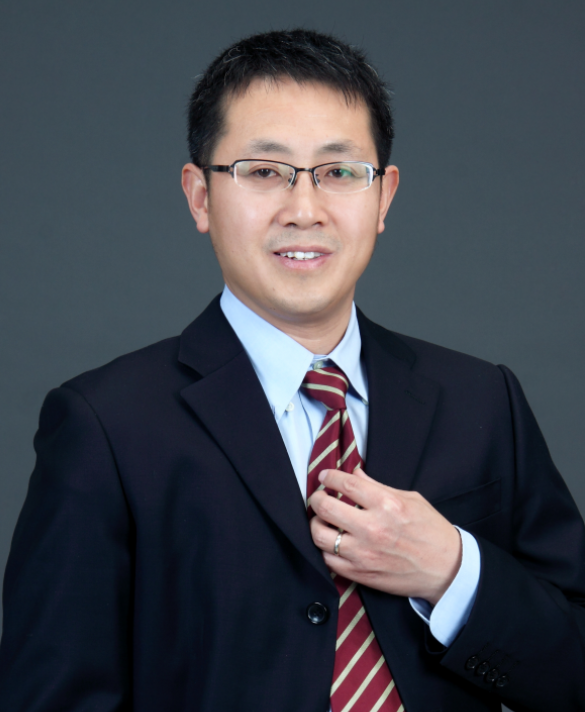 | Shen Yulong, Deputy Dean of the School of Computer Science and Technology, Xidian University, Professor; Ph.D./Master Tutor, Deputy Dean, Executive Deputy Director of Shaanxi Provincial Key Laboratory of Network and System Security. Member of the Expert Advisory Committee of the Leading Group of Shaanxi Province Network Security and Informatization, a key member of the innovation team of the Ministry of Education, and a principal researcher of the Information Security Center of the State Key Laboratory of Integrated Business Network; Outstanding Youth of Shaanxi Province, Shaanxi Youth Science and Technology Award, Sanqin Scholar, Huashan Scholar; Deputy Head of the National Commercial Secrets General Group, Expert of IEC TC 100/PWI 100-6 Standard Group, Member of Cloud Security CSA Alliance Xi'an, Director of China Institute of Electronics. The initiated IEEE NANA has been held for 5 sessions, and served various international conferences as the chairman of the conference/TPC member for more than 30 times. He has been engaged in research on wireless networks and cloud computing for a long time. The leading "heterogeneous multi-domain wireless network technology" won the second prize of the National Technology Invention Award in 2013, and the "Key Technologies and Applications of IoT Data Security" won the second prize of the National Technology Invention Award in 2020. The "Qin Dun" cloud encryption database system led by the research and development won the Gold Award (16/1800+) and the Best Business Investment Value Award (2/1800+) of the China Association for Science and Technology Innovation and Entrepreneurship Competition, and won the 2018 CCTV China Top Ten Entrepreneurial Models (the only university in colleges and universities). ). In recent years, it has undertaken more than 20 national fund key projects, 863, 973, etc., won 2 second prizes of national technological invention awards, and 7 first prizes at provincial and ministerial level; published more than 100 SCI/EI papers and 5 monographs; authorized More than 70 invention patents, 5 PCT patents, 13 patents have been transferred; more than 40 registered soft works; 5 Chinese communication/electronic industry standards have been formulated. |
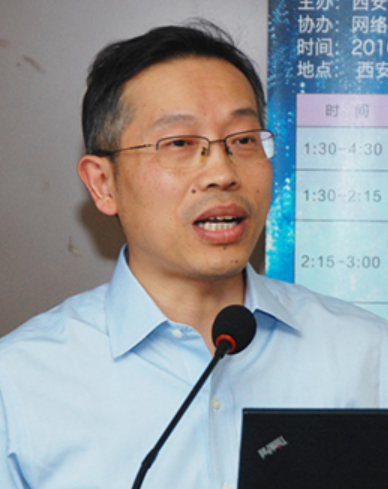 | Li Hui, professor and doctoral supervisor, is currently the executive dean of the School of Network and Information Security, Xidian University. Director of the Chinese Cryptography Society, member of the Security Protocol Professional Committee, member of the Cryptographic Chip Professional Committee, member of the Information Theory Branch of the Chinese Institute of Electronics, and member of the Communications Security Professional Committee of the China Institute of Communications. The main research directions are cryptographic information security, information theory and coding theory. He presided over the National 863 Program, the National Science and Technology Support Program, the National Major Project for New Generation Broadband Mobile Communications, the National Natural Science Foundation of China, and National Defense Pre-research, and won 2 first prizes, 3 second prizes, and 3 provincial and ministerial science and technology progress awards. 1 prize, 2 second prizes for national teaching achievements. More than 20 invention patents have been authorized, and 20 invention patents have been applied for. He has published more than 170 papers, served as the co-chair of the program committee of ISPEC 2009 and IAS2009 international conferences, co-chair of e-forensic 2010, ProvSec2011, and ISC2011 international academic conferences, honorary chairman of NSS2014 and ASIACCS2016 conferences, and won the ASIACCS 2013 Outstanding Paper Award. . |
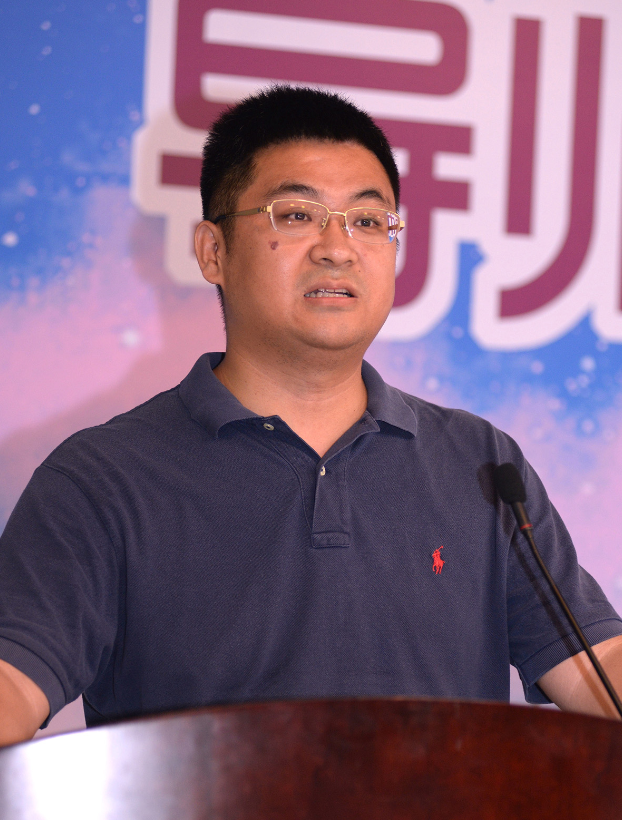 | Peng Guojun, professor of National Cyber Security College of Wuhan University; professor and doctoral tutor of National Cyber Security College of Wuhan University, selected into the National Young Talents Program. Currently, he is the executive deputy director of the Key Laboratory of the Ministry of Education, the director of the Institute of Cyber Security, the co-sponsor and executive chairman of the National Network and Information Security Protection Summit, the executive director of the China Cyberspace Security Association, and the deputy director of the Competition and Exercise Working Committee. . At present, he presides over nearly 30 vertical and horizontal cooperative scientific research projects such as national key R&D projects and the National Natural Science Foundation of China, and has published more than 50 papers. He has won the first prize of the National Teaching Achievement Award for Higher Education and the second prize of Hubei Provincial Science and Technology Progress Award A number of teaching and scientific research awards such as the first prize have been awarded, and the relevant achievements have been transformed and applied. The main course "Malicious Code Mechanism and Protection of Software Security" won the national first-class undergraduate course (National Excellent Online Open Course). |
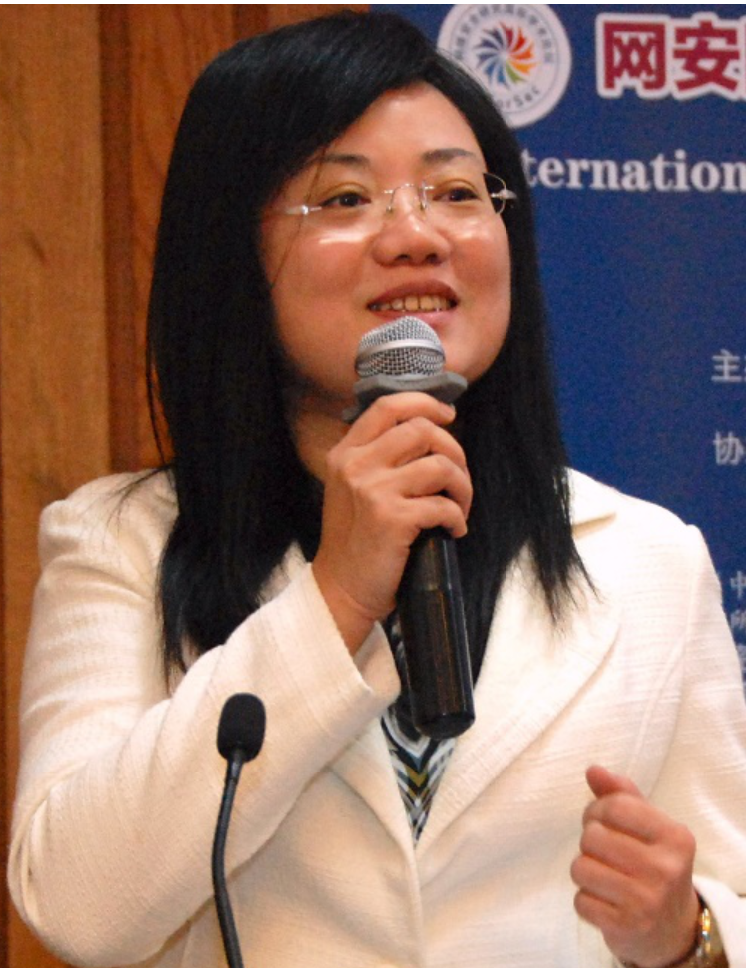 | Jin Shuyuan, director of the Department of Cyberspace Security of Sun Yat-sen University, professor; Ph.D., professor/doctoral supervisor, director of the Department of Cyberspace Security, the academic leader of Sun Yat-sen University's "Hundred Talents Program" and the academic leader of "Cyberspace Security" in short supply. Ph.D. (Network and Information Security) from Hong Kong Polytechnic University, researcher at Deakin University, Australia. He has served as researcher and doctoral supervisor of the Institute of Computing Technology, Chinese Academy of Sciences, and head of the Information Security System Department of the Key Laboratory of Network Data Science and Engineering. The main research directions include cloud security, big data security, network attack and defense, security vulnerability analysis and assessment, privacy security, etc. He has presided over 18 scientific research projects such as the National Natural Science Foundation of China, the 863 Program, and the National Development and Reform Commission's Information Security Special Project, with a cumulative scientific research funding of more than 18 million yuan; undertaken 26 scientific research projects including 973, 863 major, and 863 goal-oriented research, with a cumulative scientific research funding of more than 28 million yuan Yuan. |
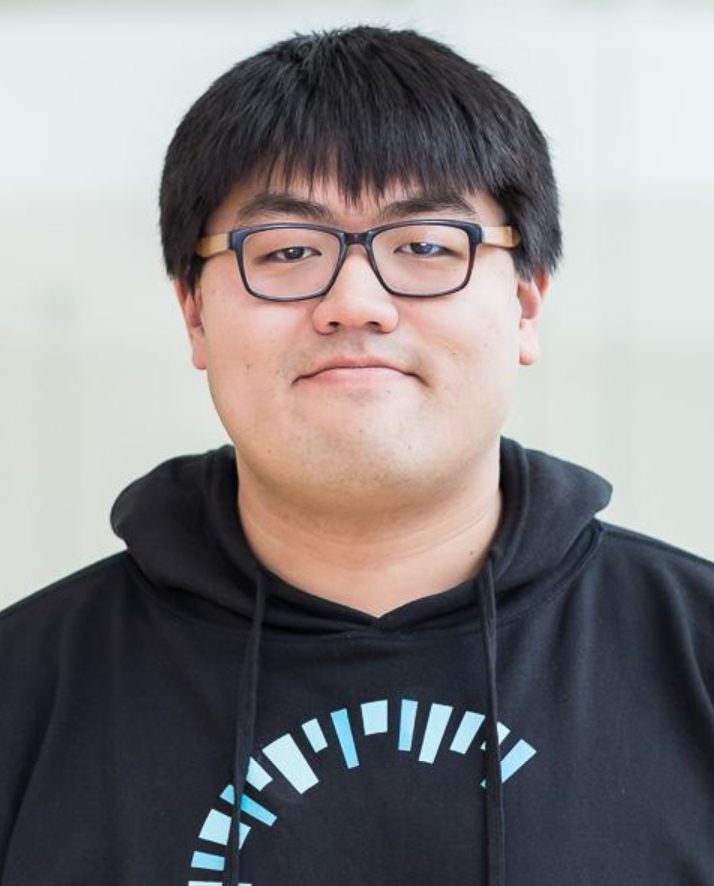 | Yang Zhang is a faculty member at CISPA Helmholtz Center for Information Security, Germany. Previously, he was a group leader at CISPA. He obtained his Ph.D. degree from University of Luxembourg in November 2016 under the supervision of Prof. Sjouke Mauw and Dr. Jun Pang. Yang's research interests lie at the intersection of privacy and machine learning. Over the years, he has published multiple papers at top venues in computer science, including WWW, CCS, NDSS, USENIX Security, and IJCAI. His work has received NDSS 2019 distinguished paper award. Yang has served in the technical program committee of ACM CCS 2020 2019, ISMB 2019, WWW 2020, RAID 2020, ICWSM 2020, and PETS 2021 2020.. |
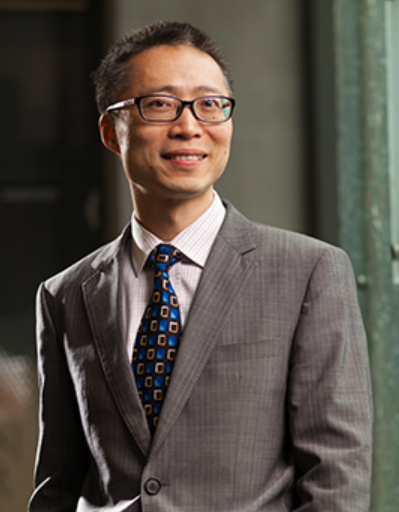 | Xiang Yang, professor at Swinburne University of Technology, Australia; Ph.D., professor, doctoral supervisor, Changjiang Scholar Chair Professor of the Ministry of Education of China, and senior member of IEEE. He is currently the Dean of the Institute for Digital Innovation at Swinburne University of Technology, Australia. The leadership team has achieved international academic status, managed a high-level research platform, and has sufficient ability to create a domestic and foreign industry-university-research ecological environment. Mainly engaged in the research of network and system security, distributed system security, blockchain application and security, etc. In recent years, he has chaired the research and development of 8 Australian Government ARC projects as project leader. Professor Xiang Yang has published more than 200 high-level papers in important international journals and conferences, and his main results have been published in "IEEE Transactions on Computers", "IEEE Transactions on Parallel and Distributed Systems", "IEEE Transactions on Information Security and Forensics" and other top journals. The software similarity detection system developed by his team has been used by the current mainstream Linux systems Fedora and Debian. |
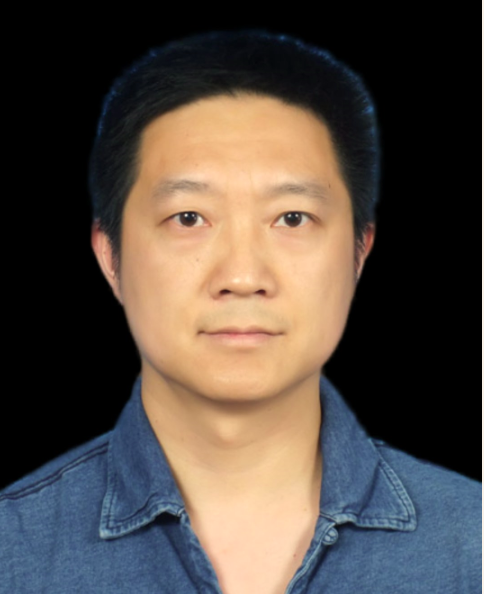 | Ting Yu, Professor at Qatar University; Research Director of the Cyber Security Group at Qatar Computing Research Institute (QCRI). He received his bachelor's degree from Peking University in 1997, a master's degree from the University of Minnesota in 1998, and a Ph.D. degree from the University of Illinois in 2003. He studied computer science at the University of Urbana-Champaign. He is the recipient of the 2007 NSF Career Award, and his research focuses on privacy-preserving data analysis, data anonymization, and secure data analysis. |
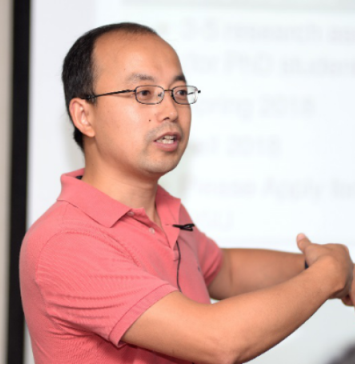 | Zhiqiang Lin is a professor of computer science and engineering at The Ohio State University. His research interests include trusted computing, systems and software security. Major research goals include the development of automated program analysis and reverse engineering techniques for securing programs, including mobile applications, and underlying systems, including operating system kernels and hypervisors. Past awards include the NSF Career Award and the AFOSR Young Investigator Award. Prof. Zhiqiang Lin is also a faculty member at the Data and Translational Analytics Institute (TDAI), the Center for Automotive Research (CAR), and the recently established Institute for Cybersecurity and Digital Trust (ICDT) at Ohio State University. |

